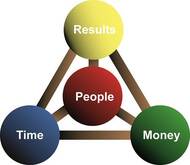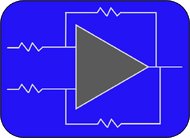-
Transitions
Jan 12, 2025
Change, like thinking, can be difficult. I hope that you see this change as a positive thing. You can now get a free PDF copy of An Engineer's Guide to Solving Problems.
-
This too shall pass
Nov 6, 2024
It is easy to get upset during turbulent times. One way to cope is to remember some famous advice.
-
It Is Not Enough
Oct 8, 2024
First things first: Problem-solving skills are great, but only if you have the skills and knowledge expected of somebody in your profession.
-
-
Sustainability
Jun 28, 2024
Sustainability can be seen as a big important topic or something much simpler.
-
-
Breakpoints
Apr 30, 2024
In software development and in life we frequently need breakpoints to help us solve a problem.
-
When You Assume...
Mar 4, 2024
It's not always a bad thing when you make assumptions, but you will need to verify them.
-
If I Could See It, I Could Fix It (2)
Jan 31, 2024
Here is another story about struggling to see past a barrier.
-
Paper Cuts and Itches
Dec 12, 2023
Lots of little things can get in the way of a project. Some can be very irritating, just like Paper Cuts and Itches.
-
Resilience
Aug 31, 2023
Resilience is that magic which helps us get back up when we have been knocked down.
-
-
One Hundred
Jun 14, 2023
My one-hundredth post discusses some things I have learned and shared over the past 10 years.
-
Projects
May 1, 2023
The end of a recent many-year, many-problem project got me thinking about the mixed feelings I was having about it ending.
-
Obsolescence
Mar 18, 2023
Stumbling across an old component led me to consider what happens when they or specific technical skills become obsolete.
-
Planning
Feb 8, 2023
One key skill for getting hired (and staying hired) is your ability to work with your project team's planning tools.
-
Spammers
Dec 8, 2022
Many communication channels are being overwhelmed with endless spam (unwanted and unwelcome messages). The message signal-to-noise ratio is falling below usable minimums.
-
Redefining Yourself
Sep 28, 2022
Sometimes if you want to improve your job performance you will need to change how you see yourself.
-
-
CADHouse Diaries #3
Jun 8, 2022
And here we share that time the engineer fixed a peripheral interface board in that same minicomputer-based CAD system.




